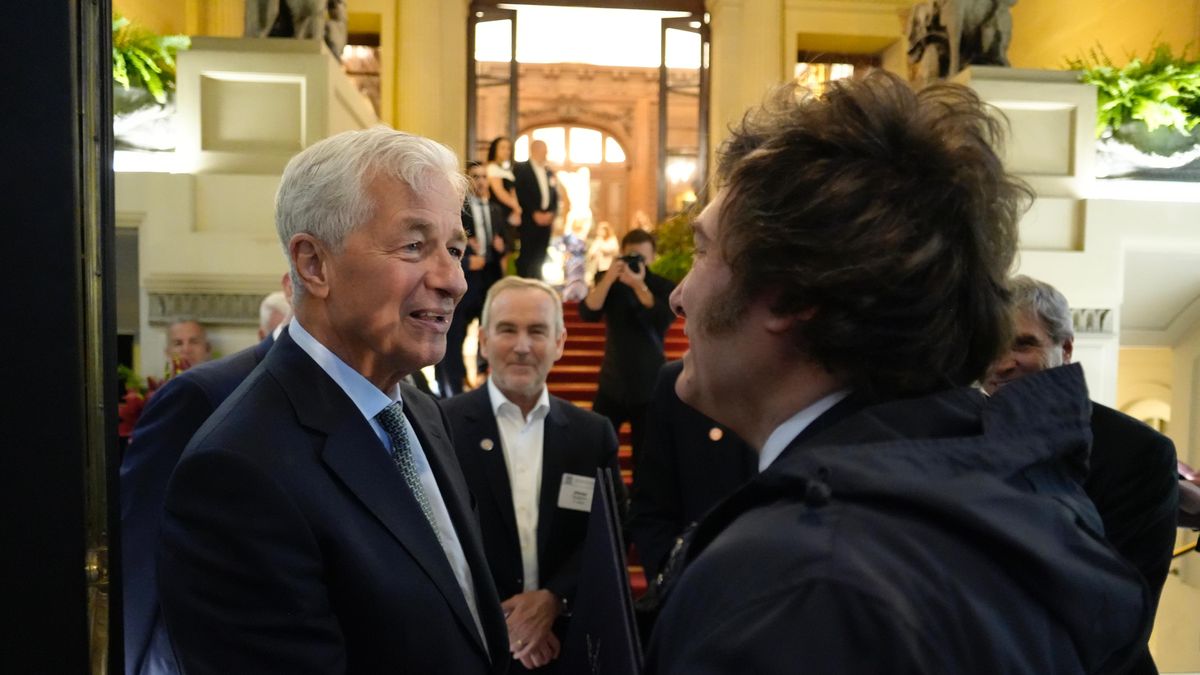The Berlinale is scheduled to start with Cilian Murphy, who was nominated for the Oscar for “Oppenheimer,” on the red carpet and Martin Scorsese is also coming. But whether it can avert the loss of significance will only become clear later.
This article is adapted from the business magazine Capital and is available here for ten days. Afterwards it will only be available to read at again. Capital belongs like that star to RTL Germany.
It almost looks like it always does in front of the Festivalpalast, which is actually a temporarily empty former musical theater that lives from the fact that people like Dieter Bohlen can rent it for their birthday parties. But now workers are walking through the Berlin drizzle at Potsdamer Platz and are building a roof for the red carpet at the Berlinale so that the stars don’t get wet if many come this year. But the announcements in this regard don’t look so bad. Already this evening, at the opening of the festival, the Oscar-nominated star Cilian Murphy, who was nominated for “Oppenheimer”, will march through under the rain protection and present the Irish opening film “Small Things Like These”. Matt Damon, who co-produced the whole thing, is also announced. This doesn’t start off bad at all.
Despite the prospects for a befitting start, the prospects for the most important industry event in Germany are rather bleak. For years, the Berlinale has been struggling with a weak profile, budget cuts, sponsor departures and open management questions. Only the audience remains surprisingly loyal, that is and remains a great asset. As a big city festival with many enthusiastic filmgoers, the Berlinale can at least score points at a time when cinemas are having problems and the streaming boom, which had euphorized the film industry for several years, is over for the time being. Despite the loyalty of the audience, it is clear that the competitors in Cannes and Venice have increased the gap to Berlin.
An indication of this was the jubilant messages that the festivals in France and Italy sent at the end of January when the Oscar nominations were announced in Los Angeles. Cannes reported that nine films from the festival’s official selection made it onto the list for the Hollywood Prize and that they collected 26 nominations – including the two films with Sandra Hülser: Justine Triet’s “Anatomy of a Case”, which received the The Auschwitz drama “The Zone of Interest” by Jonathan Glazer won the Palme d’Or. Venice also proudly reported seven films and 24 nominations – especially Yorgos Lanthimos’ furious Frankenstein farce “Poor Things”, the Golden Lion winning film with Emma Stone in the lead role. Even if the titles mentioned don’t win an Oscar, they undoubtedly mark the outstanding films of the year and prove the role of the two Mediterranean festivals as discoverers and setters of trends.
The Berlinale, however, did not send a press release about the Oscar list. Last year she only premiered one film from it, “The Teacher’s Room”, the German candidate for the Oscar in the “best foreign film” category. And the 2023 Berlinale winner, a French documentary about a day clinic in Paris called “Sur L’Adamant,” left few memories in the film year. This year’s competition program also documents that the Berlinale has lost its relevance. Big names, long-awaited films are missing from the list. This is partly due to the unfortunate date of the German festival in the annual calendar. And it hasn’t become any easier for the other festival directors to meet such demands. But in recent years Berlin has often looked as if they had even given up the ambition to do that.
However, that could possibly change. In December, Minister of State for Culture Claudia Roth, who was ultimately responsible for the festival, announced a surprising appointment that could be a sign of hope. From 2025, Tricia Tuttle, a native American and long-time director of the London Film Festival, will direct the Berlinale. The future boss enjoys a good reputation in the industry and emphasized the potential of the Berlinale during her presentation. But it doesn’t start until 2025.
Unlucky festival management
This year, the hapless duo of Carlo Chatrian and Mariette Rissenbeek is still in charge. They were in office for five years, had a lot of bad luck (the corona pandemic largely prevented two editions of the festival), but were also unable to provide any real impetus. Federal politicians, most recently Minister of State Roth, have done little to stop the downward spiral for a long time. The Berlinale is the only internationally broadcasting cultural event in Germany (along with the Documenta) and it doesn’t make it any better that both are currently in crisis and federal politics have only reacted sluggishly to this.
At the Berlinale, the government also cut the money for the Berlinale at a time when it was already suffering from cost increases. Less money, fewer sponsors, less glamor, less appeal, such an industry meeting place quickly becomes run down. But perhaps the new boss will be able to reverse this development, especially since Roth has promised more money again.
But it will be a long road and the farewell festival under Chatrian and Rissenbeek remains a festival in transition, the program of which once again seems to reflect all the indecision of the past few years. When presenting this program, Chatrian read out his film list and its contents as if it were a government communiqué. It’s not so easy to develop anticipation when the makers don’t give off any. The Berlinale is not only culturally important, it is accompanied by a large film market that would also benefit from a few awakening impulses and countless industry events.
On the red carpet and when the films are shown, especially if they are convincing, the sadness can perhaps be forgotten. Film art and the film industry need this opportunity to be noticed beyond their spheres too urgently to let the days of Berlin go to waste. And Chatrian has at least brought Martin Scorsese to Berlin next Tuesday to present him with an Honorary Golden Bear; the festival will then show his classic “Departed – Among Enemies”. Scorsese was the most prominent name on a list of filmmakers who spoke out against the change at the top of the Berlinale (and thus in favor of Chatrian’s stay) when it became clear last year that Roth wanted to change the festival management. After all, even the outgoing Berlinale bosses don’t want to say goodbye without a highlight.
Source: Stern




